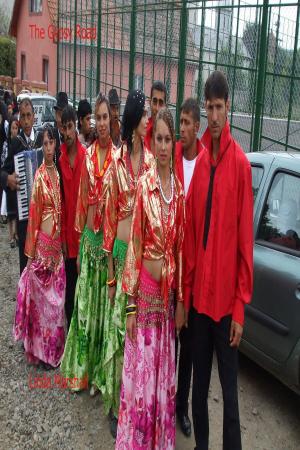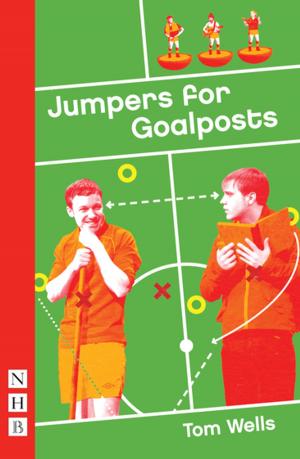| Author: | Marc Latham | ISBN: | 9781301211395 |
| Publisher: | Marc Latham | Publication: | May 31, 2013 |
| Imprint: | Smashwords Edition | Language: | English |
| Author: | Marc Latham |
| ISBN: | 9781301211395 |
| Publisher: | Marc Latham |
| Publication: | May 31, 2013 |
| Imprint: | Smashwords Edition |
| Language: | English |
'242' is Dr. Marc Latham's second poetry collection, after the first one was published by Chipmunka in 2009. The first collection contained poems written by Marc from his youth to the creation of the Folding Mirror form, while this book focuses on the FM form recognised by Lewis Turco in his definitive 'The Book of Forms: A Handbook of Poetics, Including Odd and Invented Forms'. Caroline Gill, an award-winning poet whose 'Thalatta, Thalatta' Folding Mirror poem was used as an example in 'The Book of Forms' provides an introductory explanation of the Folding Mirror form at the start of this book. This book contains 121 Folding Mirror poems created in three years by Marc Latham as he tried to make sense of the universe and life's place in it. They are supported by 121 reflections relevant to the poems’ themes. The seven chapters reflect the wide spectrum of issues and topics covered, being divided into: personal-psychological (containing thirty-four poems and thirty-four reflections), social (19-19), culture (15-15), literary (12-12), nature (30-30), travel (6-6) and space (5-5). The poems and reflections were inspired by the deepest thoughts of a PhD graduate and world traveller, and his new research and observations on the above subjects. Before and during his world travels and university education, Marc was inspired by Romantic and Beat poets, Rock musicians and other writers and journalists who have trawled the mind for self-analysis while searching for knowledge about human nature. Marc's first collection featured bipolarity and ADHD in the title, and included several poems inspired by them. These topics feature again in this collection, with the poet finding the mirror form especially conducive for bipolarity poetry. From his position in the average age's middle-age, Marc's poems and reflections in this collection stretch from humanity's prehistoric past to our current space exploration and prospective future, while also comparing us with the animal world, and tackling the important social and environmental problems of the present. Having focused on hegemony theory in his doctoral research, Marc uses his poetry to try and break through the cultural 'norms and accepted truths' of the modern monotheistic world to highlight alternative realities that could possibly improve conditions for plant, animal and human life. Marc uses the two sides of the Folding Mirror poem to show at least two sides of arguments and issues, with the folding line in the middle either connecting or dividing the two halves. There is also time for beauty and comedy amongst the digging and depression, and some poems and reflections provide colourful light-heartedness to lift the mood. Several of the poems posted as reflections were written while Marc undertook a 100-mile trek to view Everest in the Nepalese Himalayas. It is hoped that as well as entertaining the reader, the poems and thoughts will support the preservation of life and nature, and improve human understanding of itself and the world.
'242' is Dr. Marc Latham's second poetry collection, after the first one was published by Chipmunka in 2009. The first collection contained poems written by Marc from his youth to the creation of the Folding Mirror form, while this book focuses on the FM form recognised by Lewis Turco in his definitive 'The Book of Forms: A Handbook of Poetics, Including Odd and Invented Forms'. Caroline Gill, an award-winning poet whose 'Thalatta, Thalatta' Folding Mirror poem was used as an example in 'The Book of Forms' provides an introductory explanation of the Folding Mirror form at the start of this book. This book contains 121 Folding Mirror poems created in three years by Marc Latham as he tried to make sense of the universe and life's place in it. They are supported by 121 reflections relevant to the poems’ themes. The seven chapters reflect the wide spectrum of issues and topics covered, being divided into: personal-psychological (containing thirty-four poems and thirty-four reflections), social (19-19), culture (15-15), literary (12-12), nature (30-30), travel (6-6) and space (5-5). The poems and reflections were inspired by the deepest thoughts of a PhD graduate and world traveller, and his new research and observations on the above subjects. Before and during his world travels and university education, Marc was inspired by Romantic and Beat poets, Rock musicians and other writers and journalists who have trawled the mind for self-analysis while searching for knowledge about human nature. Marc's first collection featured bipolarity and ADHD in the title, and included several poems inspired by them. These topics feature again in this collection, with the poet finding the mirror form especially conducive for bipolarity poetry. From his position in the average age's middle-age, Marc's poems and reflections in this collection stretch from humanity's prehistoric past to our current space exploration and prospective future, while also comparing us with the animal world, and tackling the important social and environmental problems of the present. Having focused on hegemony theory in his doctoral research, Marc uses his poetry to try and break through the cultural 'norms and accepted truths' of the modern monotheistic world to highlight alternative realities that could possibly improve conditions for plant, animal and human life. Marc uses the two sides of the Folding Mirror poem to show at least two sides of arguments and issues, with the folding line in the middle either connecting or dividing the two halves. There is also time for beauty and comedy amongst the digging and depression, and some poems and reflections provide colourful light-heartedness to lift the mood. Several of the poems posted as reflections were written while Marc undertook a 100-mile trek to view Everest in the Nepalese Himalayas. It is hoped that as well as entertaining the reader, the poems and thoughts will support the preservation of life and nature, and improve human understanding of itself and the world.















